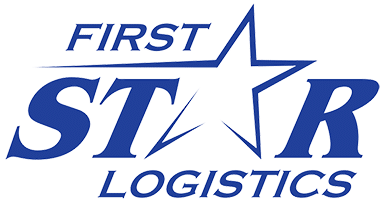What are freight agents and freight brokers? How do freight agents and freight brokers differ? Which one should I hire to handle my load? Which position is a better fit for me?
These are frequently asked questions, and we have experience with both types of freight professionals. In this article, we explain what each position entails, their similarities and differences, and how to advance your career in the freight industry.
What is a freight agent?
A freight agent coordinates the movement of freight for their shipping customers. A freight agent can be a single individual or a team of people who work under a freight broker’s operating license as an independent contractor.
Because a freight agent does not have their own operating authority, they cannot legally arrange for the transportation of freight without the supervision of a freight broker. In this arrangement, the freight agent assumes very little liability because it rests with the freight broker.
Freight agents are sometimes referred to as sales agents because they sell the services provided by the freight broker. Freight agents earn money through commissions on these sales. The commission rate is agreed upon by the freight agents and brokers.
In terms of workplace dynamics, freight agents are representatives of the freight brokers they work for. It is important that freight agents choose to work with freight brokers who align with their values and objectives.
Freight agents are responsible for cultivating exclusive client relationships and booking their own business. Freight agents typically work within the parameters and clearance procedures determined by the freight brokerage.
What is a freight broker?
A freight broker is a logistics professional who arranges the movement of cargo for shippers.
In order to conduct business, freight brokers must hold a property broker license from the Federal Motor Carrier Safety Administration (FMCSA), a surety bond for at least $75,000, and insurance. Additionally, freight brokers must maintain yearly compliance with the FMCSA, and keep records on file for at least three years.
Freight brokers must manage the invoicing of the shippers, pay their freight agents, work with freight factoring companies, and ensure the carriers are paid for their services.
Freight Broker and Freight Agent Similarities:
Provide Services
Both freight brokers and freight agents are service providers. Both types of professionals manage high levels of freight capacity and service. Their work requires them to be problem solvers and logistics consultants for their clients.
Optimize Service and Price
Both freight brokers and freight agents pair shippers and carriers in a way that optimizes service quality and price. Freight brokers and agents work to arrange the safest, most expeditious, and lowest priced transportation.
Earn a Profit
Both freight brokers and freight agents negotiate with shippers and carriers to ensure they earn a profit. Freight agents and brokers earn commissions and need to ensure that their prices include their rates.
Freight Broker and Freight Agent Differences:
Degree of Liability
Because they hold the license, bond, and insurance, freight brokers have a substantially larger degree of liability than freight agents.
Legality of Practice
In order to practice, freight agents must work with a freight broker. In contrast, freight brokers can legally conduct business without freight agents.
Branding
Because freight agents work under freight brokers, their personal brands are superseded by the branding of the brokerage firm. A freight broker is more likely to have a consistent, well-developed brand image, and freight agents are more likely to vary on an individual basis.
Company Size
Freight brokerage firms are usually much larger enterprises than freight agent independent contractor businesses.
Responsibilities
Freight agents are responsible for recruiting customers, finding carriers, and arranging freight transportation. Freight brokers can conduct all of the tasks that a freight agent is responsible for in addition to creating invoices, maintaining compliance standards, processing claims, conducting credit checks, and more.
Additional Services
Freight brokers can offer other services to their clients such as technology and transportation management. In contrast, freight agents can only offer what their supervising brokerage firm allows.
Join The First Star Logistics Team
To learn how to become a freight agent, read this guide.
To learn how to become a freight broker, read this guide.
First Star Logistics is a global logistics provider with over 60 years of experience. As a comprehensive, asset-based provider, First Star Logistics has an in-house freight brokerage department that serves the United States. Through a unique freight broker and freight agent training program, First Star Logistics offers competitive opportunities to logistics professionals and ensures every team member meets the highest standards. To join the First Star Logistics team as a freight broker or freight agent, apply now!



